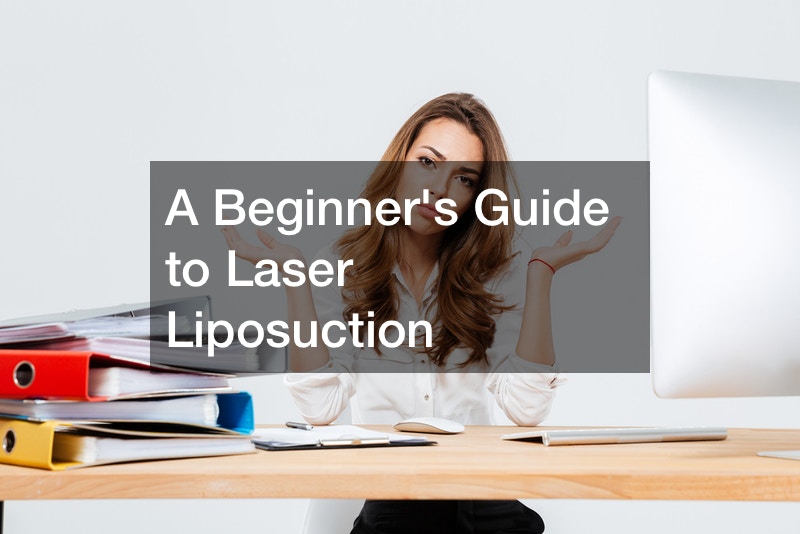
Have you recently been feeling overwhelmed or exhausted? Stress can be a strong motivator in small doses. However, it can harm your health, work performance, and relationships if not checked. The American Institute of Stress cites that 55% of Americans have stress during the day. Therefore, it’s imperative that you create a list of eight strategies for managing stress to add to your routine. Let’s look at a list of eight strategies for managing stress that’ll allow you to live a satisfying life.
1. Take Care of Your Body

The American Psychological Association says that stress affects all parts of the body. It affects the musculoskeletal, cardiovascular, endocrine, and nervous systems. For example, when you’re stressed, your muscles tense up. You may also experience shortness of breath and difficulty breathing. Caring for your body lowers your vulnerability to stress.
But how do you take care of your body to prevent the negative effects of stress? You can begin by being active. That doesn’t mean you must lift dead weights and jump rope a thousand times. You can choose dancing if you love it. A quick dip in a swimming pool will produce the feel-good hormones you so much need. But don’t stop at physical activity–eat healthy foods such as veggies and lean protein. Try massage therapy treatment if you have had a long week and your body feels exhausted.
Sometimes, you’re stressed because you’re not getting enough sleep. The CDC recommends getting 7-plus hours of sleep for adults. If you have been drinking alcohol to cure stress, try limiting your intake. Moreover, consider visiting chiropractors to relieve back pain if it’s the root cause of your stress.
2. Get Internal Discomfort Checked Out
When you list eight strategies for managing stress, ensure it addresses inner discomforts. That way, you’re getting to the bottom of things to ensure stress doesn’t flare up again. When you have stress, it affects your body, and the reverse is true. If you have any internal discomfort, check it before it affects your health. In the meantime, you can try relaxation techniques such as meditation.
It is sometimes difficult to go to the hospital, especially when you expect a bad report. Yet, it’s much easier to manage a condition you know than trying to guess and getting stressed all the more. A medical professional will not only diagnose you. They’ll also recommend a treatment option. If you’ve experienced stomach bloating, they may suggest appropriate IBS treatment.
You can also check your internal discomfort in a non-hospital setting. For example, women experiencing period pain can find help in an acupuncturist clinic. If you can manage your internal discomfort, you’ll have one less thing to stress about. Besides, professionals can help you go beyond your comfort by referring you to another professional.
3. Get the Medical Support You Need

When you list eight strategies for managing stress, ensure medical help features prominently. Stress is vital for survival but can be paralyzing in large amounts. Major health organizations classify stress as a valid reason to seek help. Of course, the best place to start is your physical health. Your physician can do medical product fittings that lessen stress and do check-ups.
You can also get mental health help. Stress can lead to mental problems. A Medline Plus report says in August 2022, 32% of American adults had anxiety or depression in the last two weeks. If you’re feeling overwhelmed by stress, seeking help is okay. You can talk to a therapist, counseling psychologist, or spiritual leader. A mental health professional may recommend a treatment option to reduce your symptoms.
Apart from conventional medical help, you can seek alternative health support. Sometimes stress-induced mental health issues don’t respond to conventional treatment. Alternative medicine may lack research supporting it as conventional medicine does. Despite this, some people have had positive experiences with psychedelics, aromatherapy, and acupuncture. It’s essential that you only work with qualified and licensed professionals.
4. Care for a Pet
Did you know that caring for a pet is a science-backed strategy for stress management? It’s good to note that caring for a pet can mean more stress, but for many people, it’s a stress reliever. Harvard Health says that pets can cause physiological changes in humans. For example, humans can experience increased production of oxytocin–a feel-good hormone. Others may experience reduced heart rate and lower oxygen consumption.
If you’re overwhelmed, getting a pet to feel good may feel selfish. Yet, by owning a pet, you’ll also be giving love, attention, and care to a furry animal. Some pets, such as dogs and cats, enjoy human company, and many mirror emotions like sadness. It’s essential to consider how owning a pet will impact stress. If it feels like too much work, it’s okay to pose until you’re at a place you can provide them with love.
If you don’t already have a pet, consider adopting one. The simple act of altruism will boost your moods. Be free to try non-conventional pets if you’d love them more. Once you have a pet, spend time with it and have an emergency pet doctor on call. You can take them out for a walk, cuddle them or play a simple game. Take the time to practice mindfulness. For example, try to focus on the moment and not overthink other aspects of your life.
5. Treat Yourself

One way to reduce stress is to list eight stress management strategies focusing on self-care. Self-care is an effective strategy for reducing mental health issues. If you’ve been thinking of pampering yourself- go ahead. No guilt for an activity that could improve your well-being. The National Institute of Mental Health recommends 30 minutes of regular exercise daily. Be kind to yourself even when you don’t hit the 30 mins target.
One of the beautiful aspects of self-care is that it’s different for everyone. If exercise in a gym is a stress trigger for you, a swimming session at a clubhouse could leave your mood on cloud nine. Manicure and pedicures can also be a fun, healthy way to de-stress. Make sure you look for a tranquil spa that lets you relax without the pressure to act in certain ways.
Self-care doesn’t have to be alone. Engaging in self-care practices as a group can amplify the effects. If you enjoy hikes, tag some friends or family with you. Join an online community in creative activities such as acapella or games. You can even plan a trip with a loved one to an an-out-of-the-city spot.
6. Smile
Smile. It’s that simple, or not? If you don’t like some aspects of your smile, you can visit a dentist office. It’s essential to list eight strategies for managing stress that meet your needs. For example, people with misaligned teeth may feel apprehensive about smiling. In some cases, teens may be victims of bullying because of their looks. Yet people who use dental fixtures such as Invisalign feel better about themselves.
The suggestion to smile doesn’t mean you fake it until you make it. Rather, it means looking for situations that make you smile naturally. For some people, that means seeing their loved ones. If that’s you, schedule a trip to see someone who makes you smile. For others, engaging in creative art such as drama or singing draws a smile any day. Find ways to smile because it’s worth it as a smile reliever.
How does a smile reduce stress? When you smile, your brain produces natural mood boosters called endorphins. Endorphins help reduce stress hormones such as cortisol. These hormones cause your muscles to tense up, but smiling can ease these tensions. So, next time you try holding back a smile because times are difficult, don’t. Instead, smile.
7. Take Care of Your Teeth

If you want to list eight strategies for managing stress, don’t forget dental care. Do you know that stress can cause dental conditions? The ADA surveyed stress-related dental issues as observed by dentists. 70% reported an increase in issues such as teeth grinding and clenching. As noted earlier, having a dental issue such as a misaligned tooth can affect your mood. The opposite is true. The good thing is, with small changes, you can make improvements.
Dentists encourage some basic preventative care such as flossing and brushing daily. If you struggle to create long-lasting habits, try scheduling. For example, you can dedicate 30 minutes in the morning to personal care. During this time, do your dental care and other practices that will likely make you feel better. You can also schedule time with your dentist to ensure you don’t miss any.
Good dental care can end the discomfort that is causing you to stress. In some cases, affordable dental implanting could be the strategy you need to improve. Other dental procedures, such as braces and teeth whitening, can help you feel better. Even more, practicing daily habits such as flossing gives you a sense of control over your life.
8. Find Your Happy Place
Sometimes, list eight strategies for managing stress you have heard. Many people have gone through stress but managed to cope. They found their happy place. Have you found yours? The simple joys of life, such as a walk to the park, a cup of coffee, a chat with a friend, or a trip to the zoo, are the boost we need. Practicing these joys will keep you satisfied through life seasons.
The first place to start is your home. Create a sweet, calm environment with crystals for anxiety, scents, and ambient lighting. Set up a special place where you can meditate and reflect. Make time for the people who bring out the best in you. Remember that finding a happy place is a continuous process. The best thing to do is start. Beautiful habits take time, but they’re so worth it.
If an activity you thought could bring you joy fails, don’t be too hung on it. Instead, try something else that you enjoy. It doesn’t have to be what everyone enjoys. Remember to choose legal activities that don’t harm you. For example, you can enjoy a TV show, but binging will create an addiction that will add more stress.
Sometimes, it persists even when you list eight strategies for managing stress. The first thing you could consider is stepping aside for a short time. For example, if work is causing you to stress, can you take a short leave? Could you ask your partner if you can take a break? A break can help you clear your head and gain a new perspective.
Try breathing. Sometimes, too much stress can interfere with your physiology. Breathing can help you feel relaxed. Mindfulness techniques are also effective in getting you to the moment. If you struggle to do it alone, join a yoga class. Try journaling too. Journals are a good way to gain an understanding of our thoughts. Your entries can help you be grateful for the progress you have made.
When you have tried all the strategies that don’t seem to work, it’s time to talk to someone. It’s okay to seek help. If you’re having suicidal thoughts, call the National Suicide Prevention Hotline (1-800-273-8255). Be vulnerable with someone who can keep you accountable. If you live alone, you can consider living with family or a loved one until you feel better.
Stress is a normal part of life, but left unchecked, it can take a toll on your health and well-being. Small changes in your routine can make a difference to your mental health. You have now learned how to list eight strategies for managing stress, but you have to choose what works for you. Remember that stress management is a continuous process. So it’s okay to seek help if the stress becomes overwhelming. When you manage stress, you become more productive, healthy, and content—so start today.



